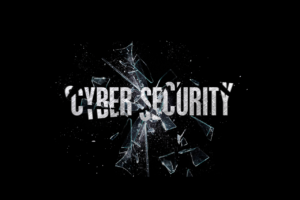Business owners often get confused between wildcard SSL and multi-domain SSL certificates, but there is a fine line of difference between the two. A detailed understanding of these two options will tell you two very different species belonging to the same genus.
However, it cannot be denied that some similarities create confusion, especially for those who fail to understand the technicalities involved in choosing an SSL. Therefore, we decided to simplify some concepts, lay down the facts, and help you pick one for your business, so let’s get started.
- Understanding a Wildcard SSL Certificate
A wildcard SSL is a unique SSL type that uses an asterisk symbol to define all the subdomains of a primary domain but only on the first level. The asterisk symbol is referred to as the wildcard character and, when defined, automatically secures all the existing and future subdomains until the SSL remains valid.
So, what is a subdomain level? Let’s assume that you own a website called www.MySite.com, which has the following subdomains.
login.MySite.com
payment.MySite.com
cart.MySite.com
admin.login.MySite.com
user.cart.MySite.com
In that case, the first three subdomains are on the same level and can be protected with a Wildcard SSL certificate issued to *.MySite.com. Let us now figure out what a multi-domain SSL certificate can do.
- What is a Multi-Domain SSL Certificate?
A multi-domain SSL certificate is a unique SSL type that is sometimes referred to as the Subject Alternative Names (SAN) SSL certificate or the Unified Communications Certificate (UCC). It is the most advanced SSL type that offers the highest level of encryption coverage and is ideal for businesses that own multiple domain names. Thus, making it appropriate for businesses operating multiple websites such as e-commerce, affiliate marketing, application development, etc.
Besides that, it is also ideal for business environments that use the intranet, email servers, etc. That’s because a multi-domain SSL certificate does over and beyond what the name implies. Apart from domains, it can also provide encryption coverage to mail servers, public IP addresses, and chosen subdomains. Usually, this type of SSL comes with the extended validation option, which is the highest level of validation and helps build more trust and credibility. In many ways, this makes things easier for those operating multiple websites under the same business name.
Let us assume John owns an e-commerce business under Spark Clothing Inc., a separate domain name for each product line for SEO purposes. For example, it could be sparkshirts.com, sparkgowns.com, sparktrousers.com, and so on. In that case, John can buy a single EV multi-domain SSL and use it to encrypt all the websites. There is no need to have an individual EV SSL issued for each site, which causes delay because each certificate needs to be individually validated by the Certificate Authority.
- Multi-Domain SSL vs. Wildcard SSL
Are you still confused about which one to choose? No worries! Let us run a quick comparison between these two SSL types based on the most sought-after features.
Encryption Coverage
The key advantage of having a multi-domain SSL certificate is that you can secure all your domains, subdomains, mail servers, and IPs with a single SSL certificate. So, with just one SSL, almost all the modes of digital communication get encrypted.
However, not every business makes use of multiple domain names, mail servers, or IPs. If that’s how you operate, then it makes no sense to buy a multi-domain SSL certificate. Instead, all you need is a wildcard SSL certificate that encrypts the primary domain and all its first-level subdomains.
Ease of Management
Although a multi-domain SSL encrypts multiple domains and subdomains, each of those needs to be defined, every time you create a new subdomain, you will have to add it to the list of protected domains that activate the HTTPS protocol.
In the case of a Wildcard SSL certificate, this is not required, and once the SSL is issued in favor of a domain name with the asterisk in front of it, you are done. As long as the wildcard SSL remains valid, all the existing and future first-level subdomains are automatically encrypted.
Validation
In the world of SSLs, there are mainly three types of validations — domain validation (DV), organizational validation (OV), and extended validation (EV) — with EV being the highest level of validation. Most Wildcard SSL certificates come with the OV feature, while the multi-domain SSL certificates come with the EV feature. The EV makes it ideal for large businesses that do not wish to go through repeated validations as it takes time and could result in lost opportunities.
Final Takeaway
To sum it up, both wildcard and multi-domain SSL certificates solve similar problems but for different web architectures. While one is ideal for single domain businesses, the other is the perfect solution for superior requirements. Their common traits include simplified SSL management, eliminating the need to track renewal dates and better security. Therefore, if you are still using a DV or Standard SSL on your website, it’s time to invest in a more advanced SSL type that ensures better security and superior encryption coverage.







